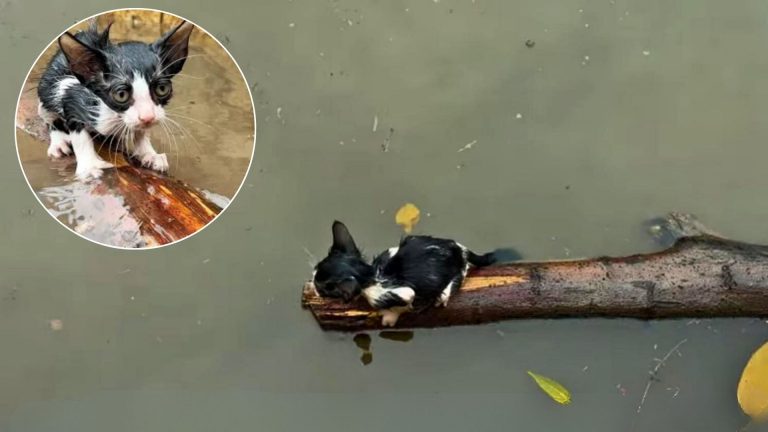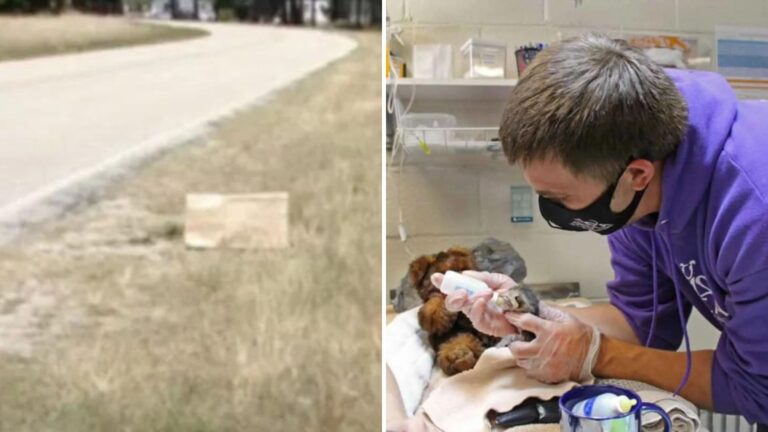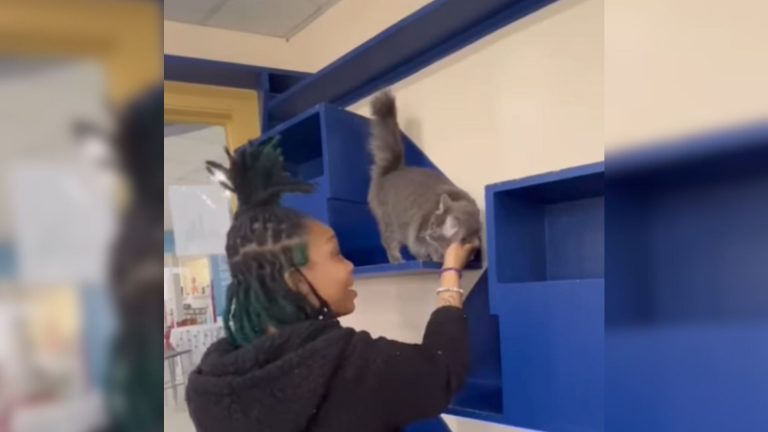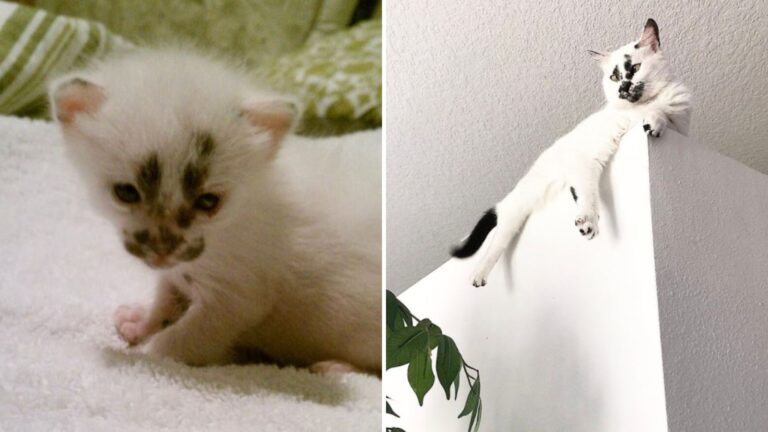Florida Rescuers Stunned After Discovering Twenty-Three Cats Struggling To Survive On A Boat
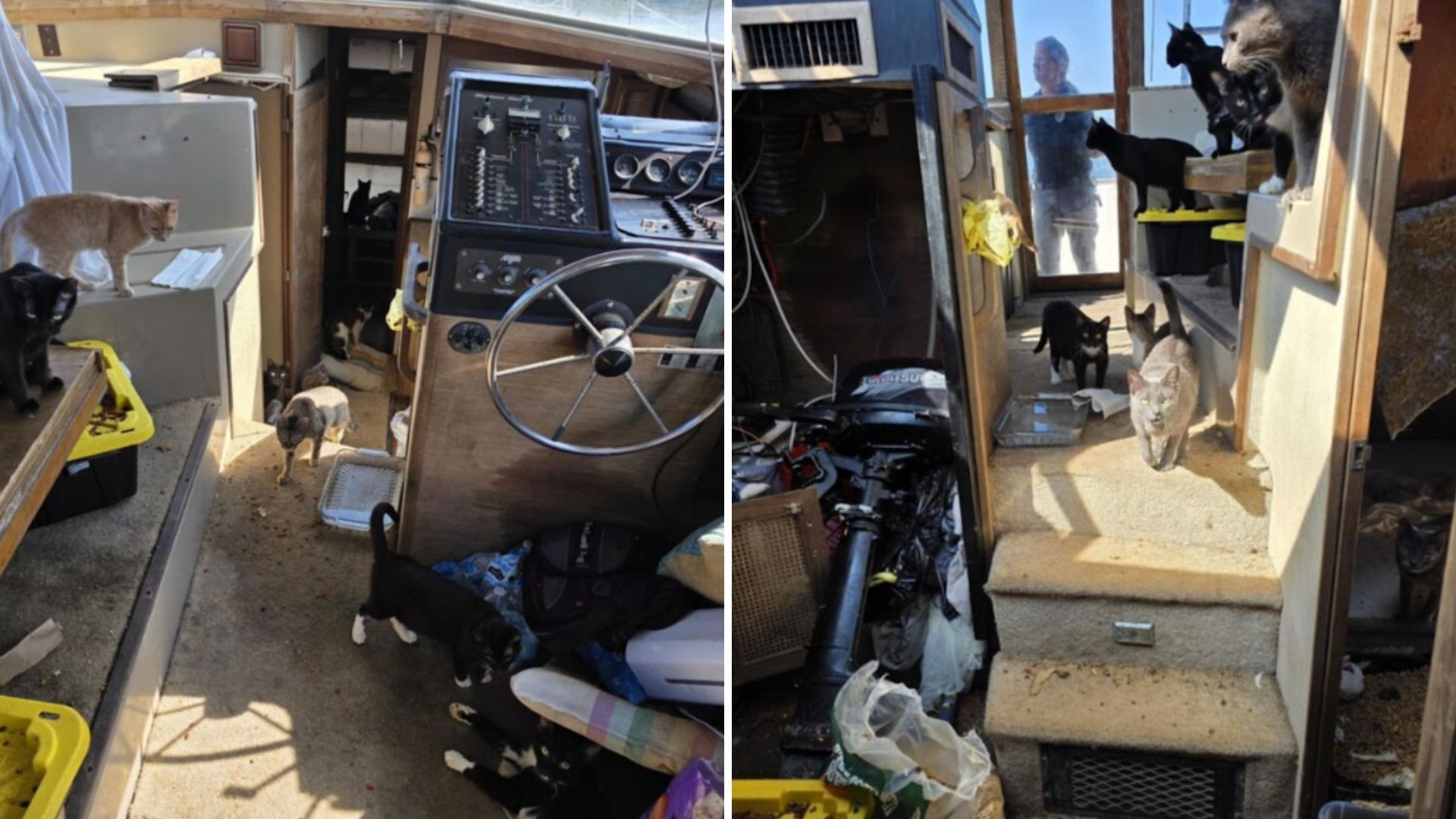
Florida is no stranger to unusual stories, but this one might surprise even longtime locals. It wasn’t about gators crossing golf courses or iguanas falling from trees during a cold snap.
Instead, it was about a group of cats, twenty-three, to be exact, living on a boat tied to a pier, waiting for someone to notice their plight.
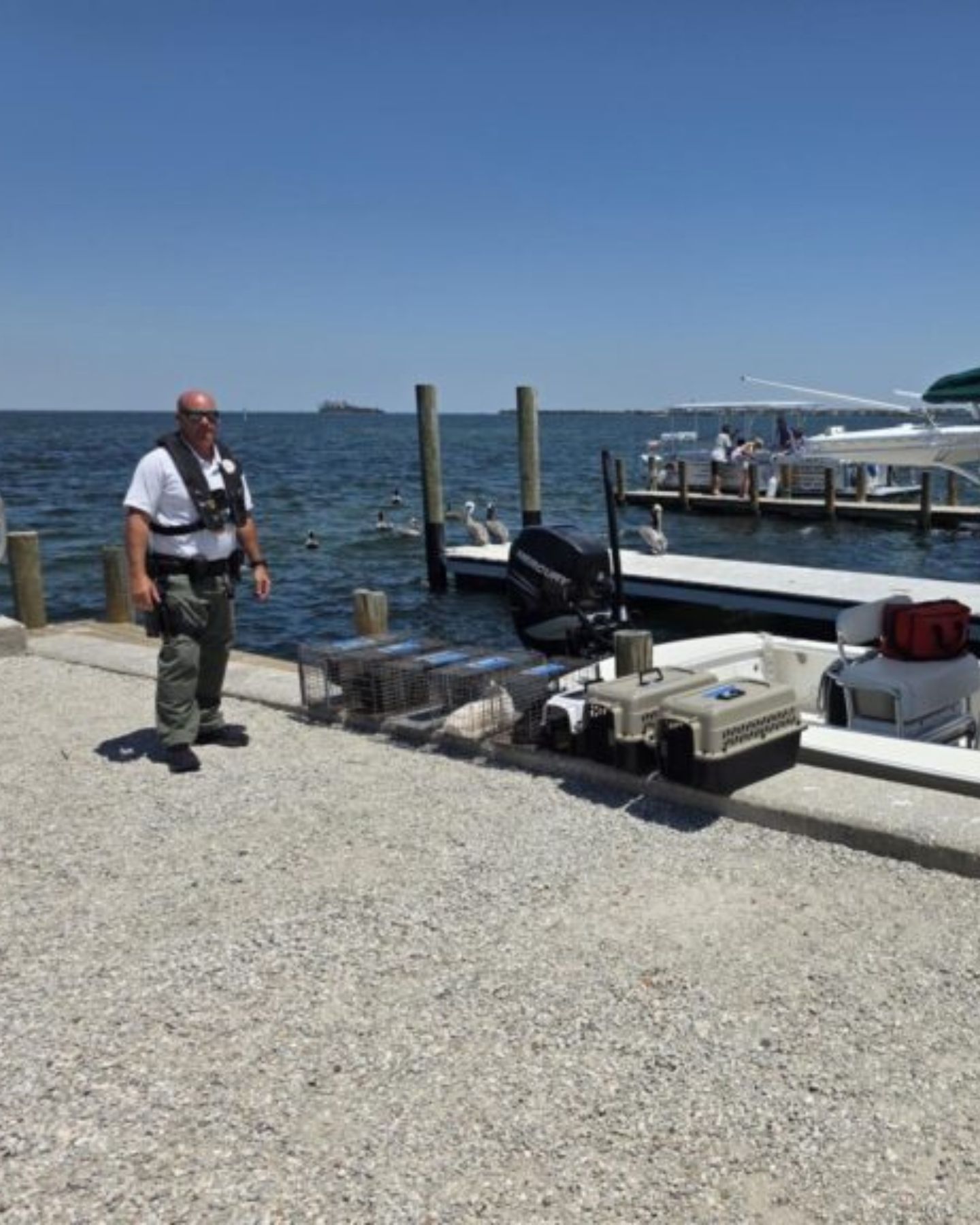
It all started when concerned residents near the King Fish Boat Ramp in Manatee County noticed something strange. A boat anchored close to the dock didn’t just hold fishing gear or supplies, it held cats. A lot of them.
Reports were quickly made, and local police and rescuers from Manatee County Animal Welfare (MCAW) arrived to investigate. What they found was heartbreaking.
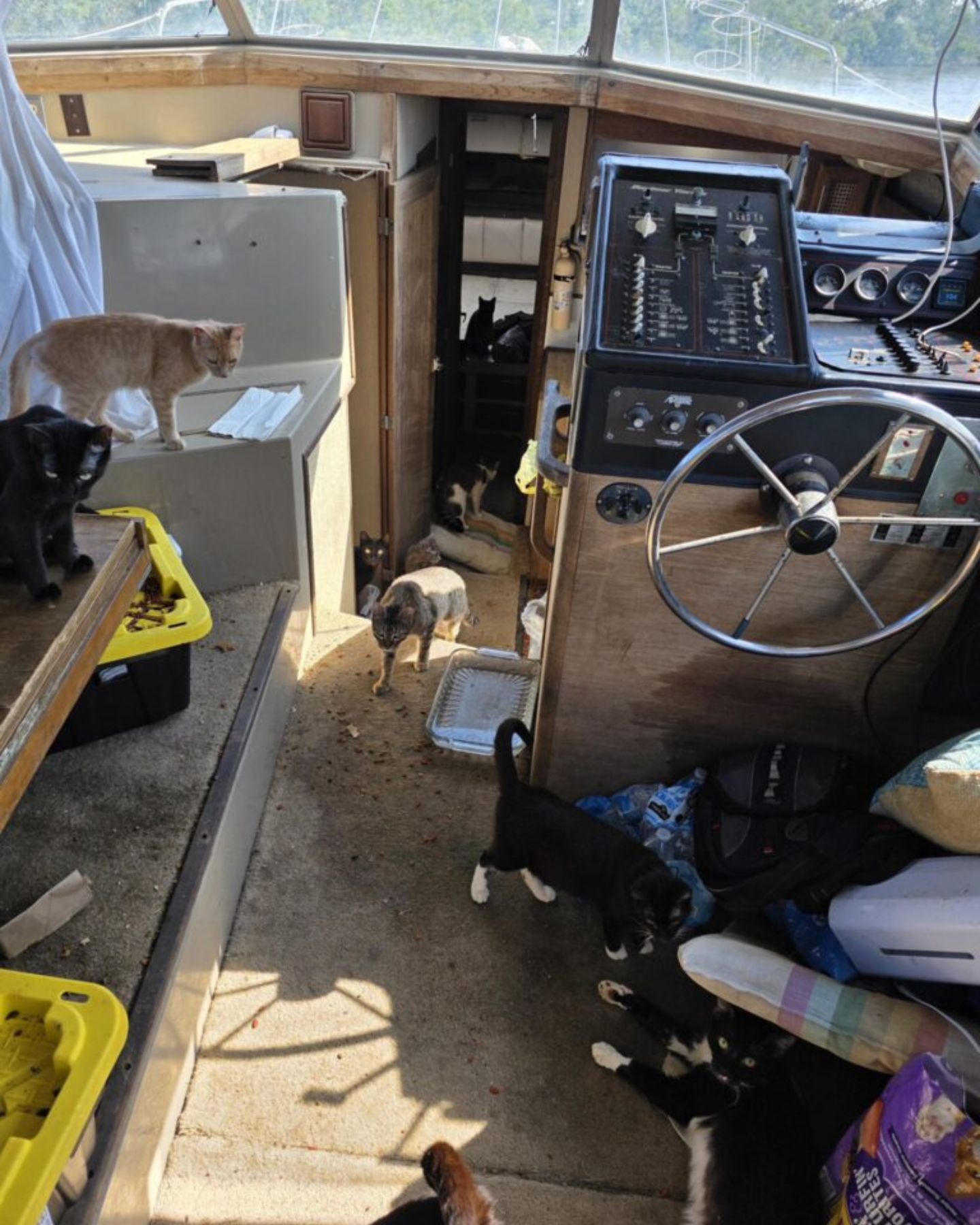
Inside the cramped boat were twenty-three cats ranging in age from one to seven years old. The space had no proper ventilation, the air was thick with the smell of waste, and the animals had clearly been struggling in harsh conditions.
Though it was shocking, cases like this aren’t always the result of cruelty. In fact, this situation had the telltale signs of animal hoarding, something that often begins with good intentions but spirals out of control.
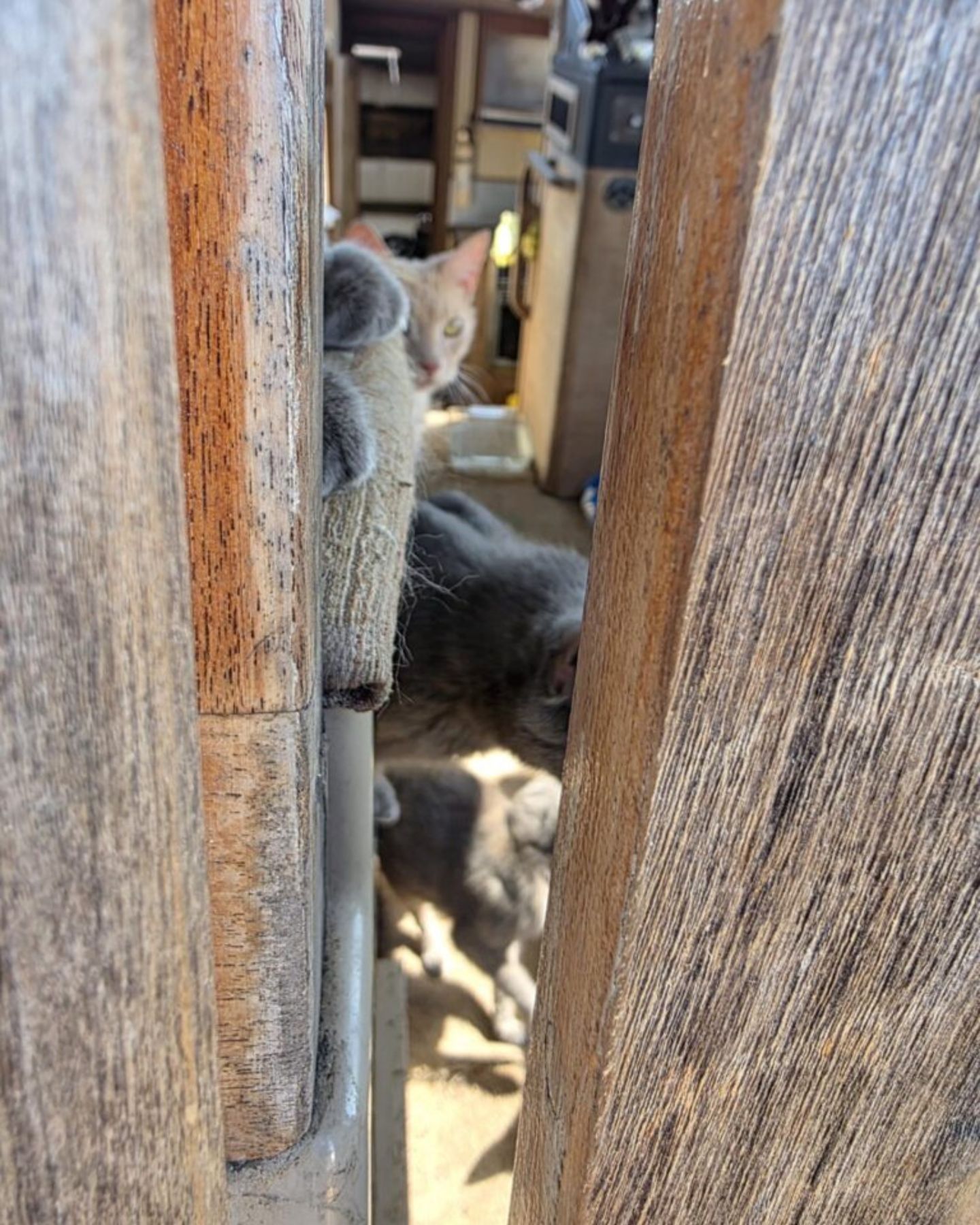
Investigators discovered that the cats did belong to someone.
The owners, facing housing struggles themselves, had been trying to keep their pets alive the only way they knew how, by paddling out to the boat every day, sometimes even in a kayak, to deliver food.
It was far from a sustainable solution. With Florida’s storm season always a looming threat and financial struggles like rising rent and insurance costs pressing down, the family’s situation was one mirrored by many across the state.
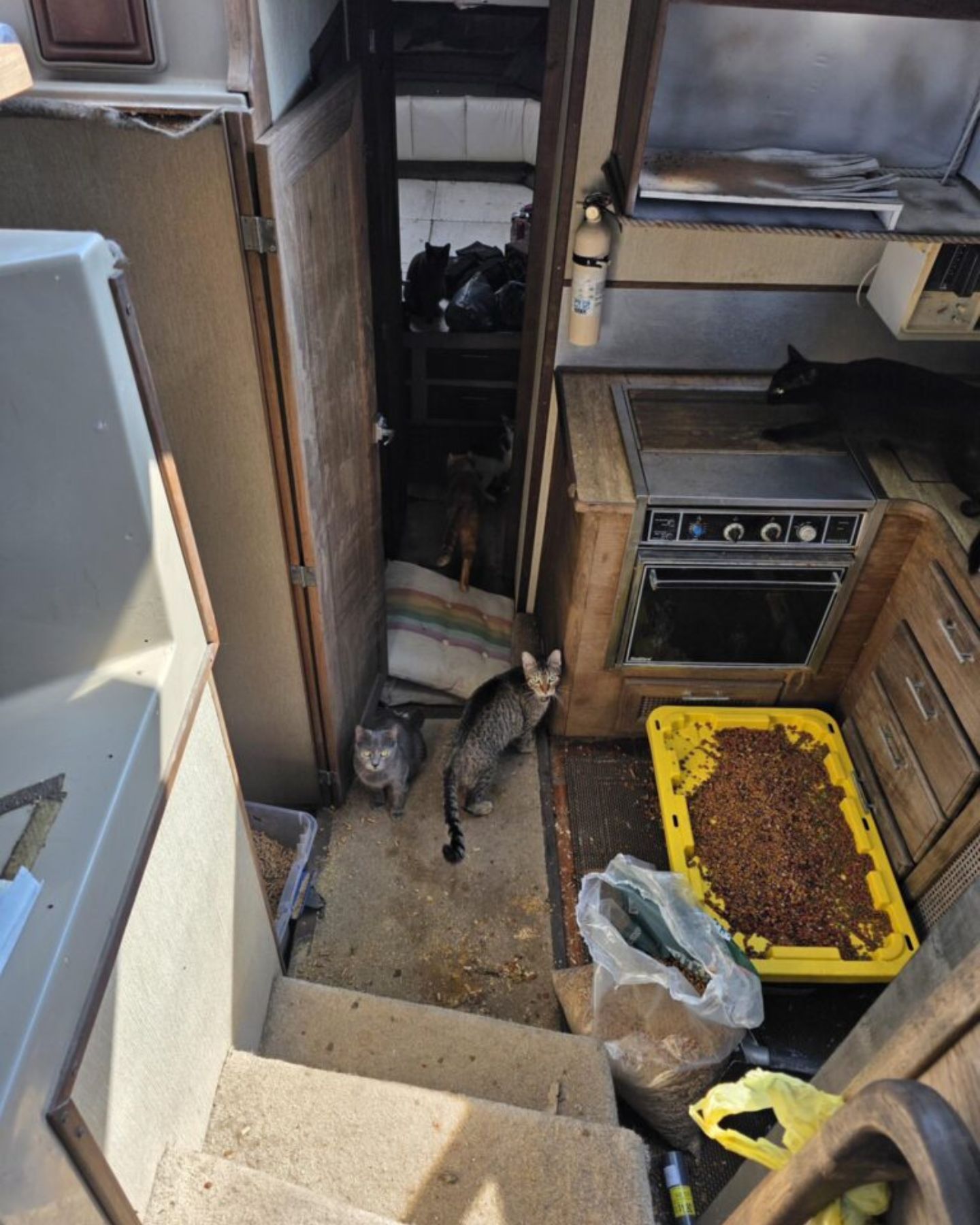
Some rescuers even believe a portion of these cats may have originally been taken in after a natural disaster left their previous homes destroyed. In an interview, Steve Bell, field services supervisor at MCAW, said it best:
“There was no doubt the owners cared about the cats, but the space simply wasn’t equipped for that many animals. After talking with us, they made the incredibly difficult but selfless decision to surrender the majority of the cats.”
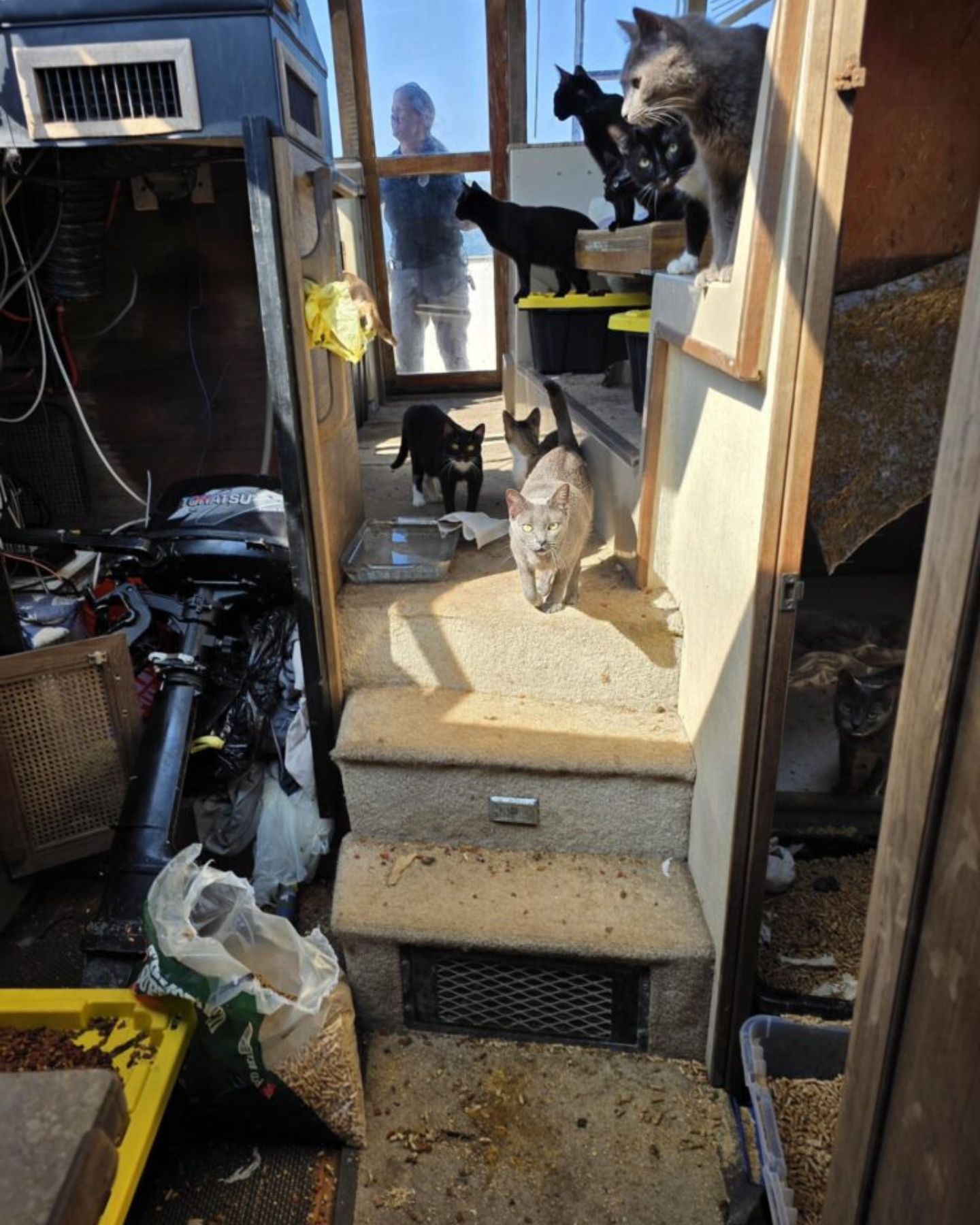
Once the decision was made, the rescue unfolded quickly. All twenty-three cats were carefully transported by boat to the Bishop Animal Shelter, where staff immediately jumped into action.
Each cat was given a veterinary evaluation, vaccinations, warm baths, and fresh bedding. Some needed additional medical care, while others were simply relieved to stretch out on solid ground again.
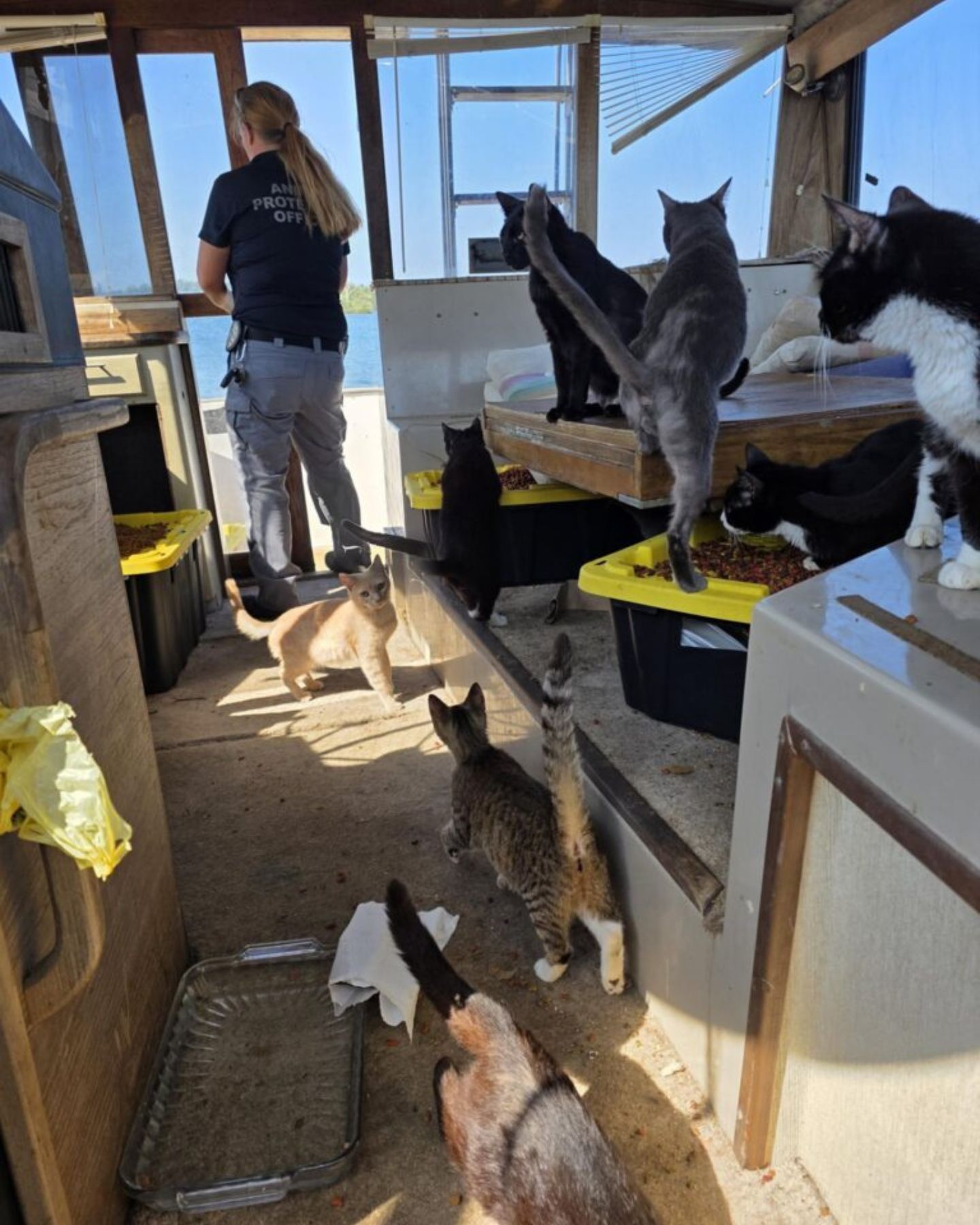
Bell explained how smoothly the process went despite the scale of the rescue:
“This was a large and unexpected intake, but our team at Bishop acted quickly and compassionately to ensure each cat received the care it needed. These cats were given warm baths, clean bedding, medical attention, and most importantly, hope.”
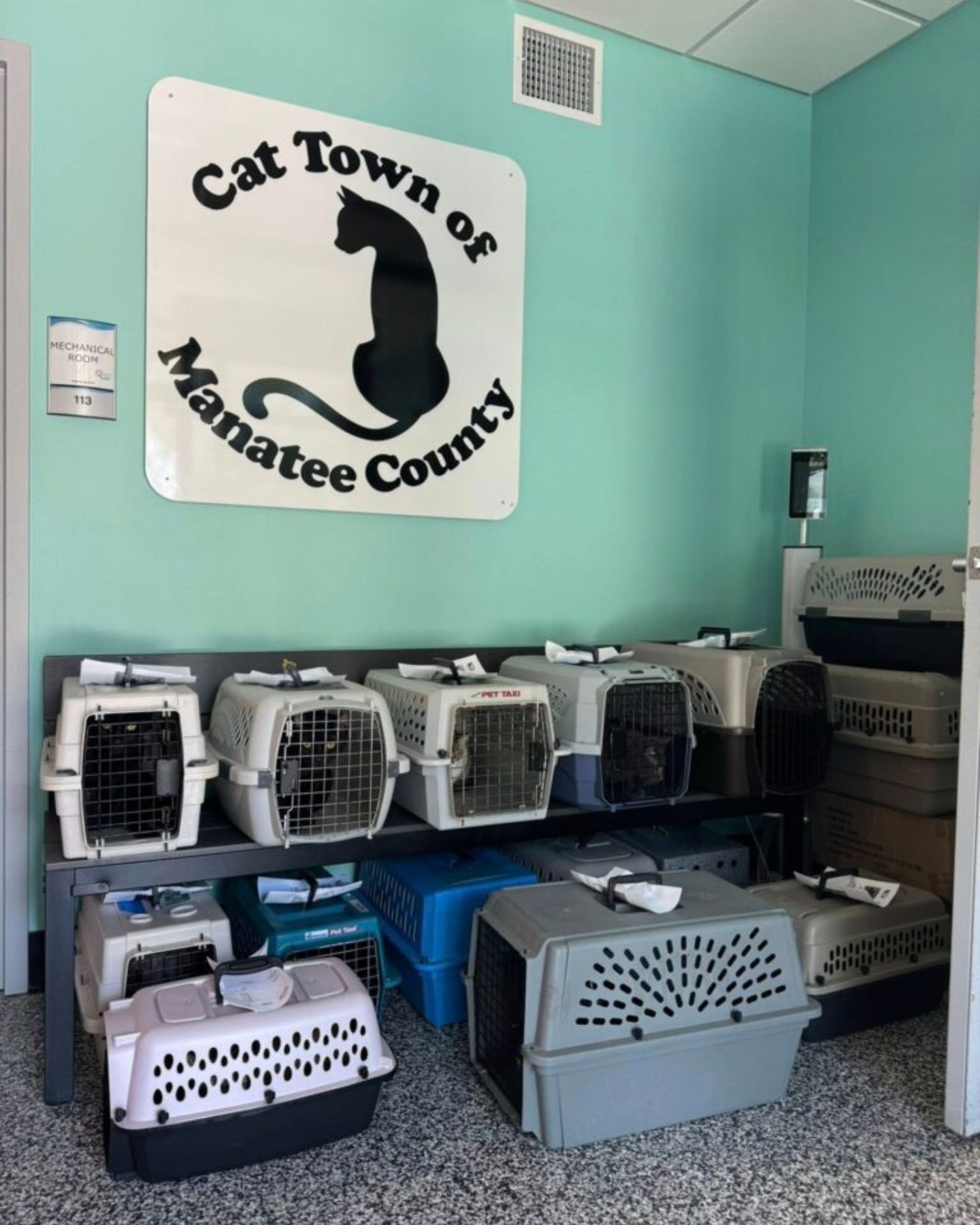
Several cats were later transferred to Cat Town, MCAW’s feline-focused facility in Bradenton. This step helped ease the shelter’s intake load and gave the cats a better chance to prepare for adoption.
Meanwhile, the original owners will keep five of the cats. To support them, MCAW has offered to cover the cost of sterilization, ensuring the smaller group can live healthier, more stable lives.
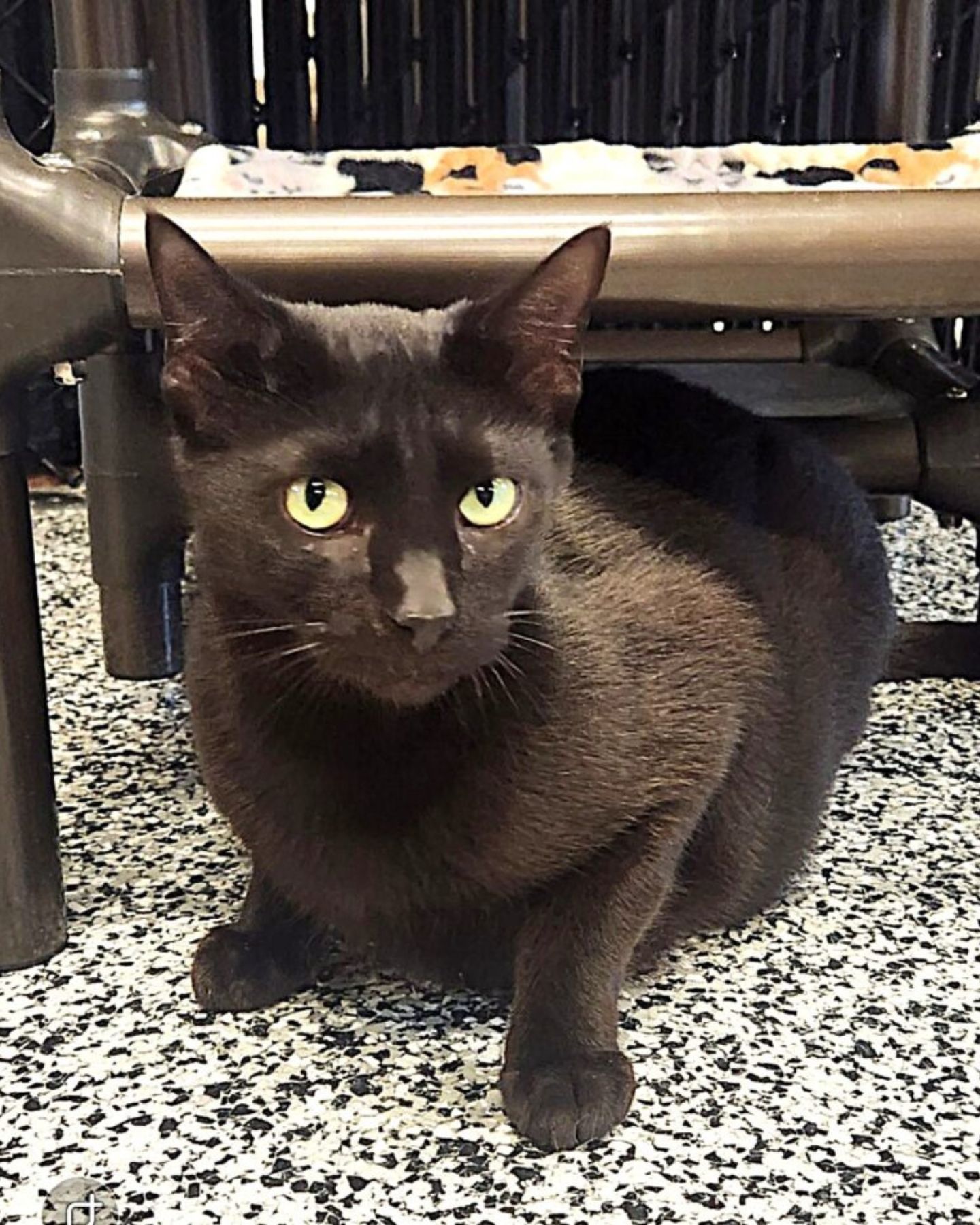
The story could have ended in tragedy, but instead it’s one of resilience and compassion. From the rocking waves of a crowded boat to the safety of clean kennels, these twenty-three cats now have a future.
Some are already being adopted into forever homes, while others continue to recover and wait for the right family. But what’s certain is this: their days of surviving in silence are over.
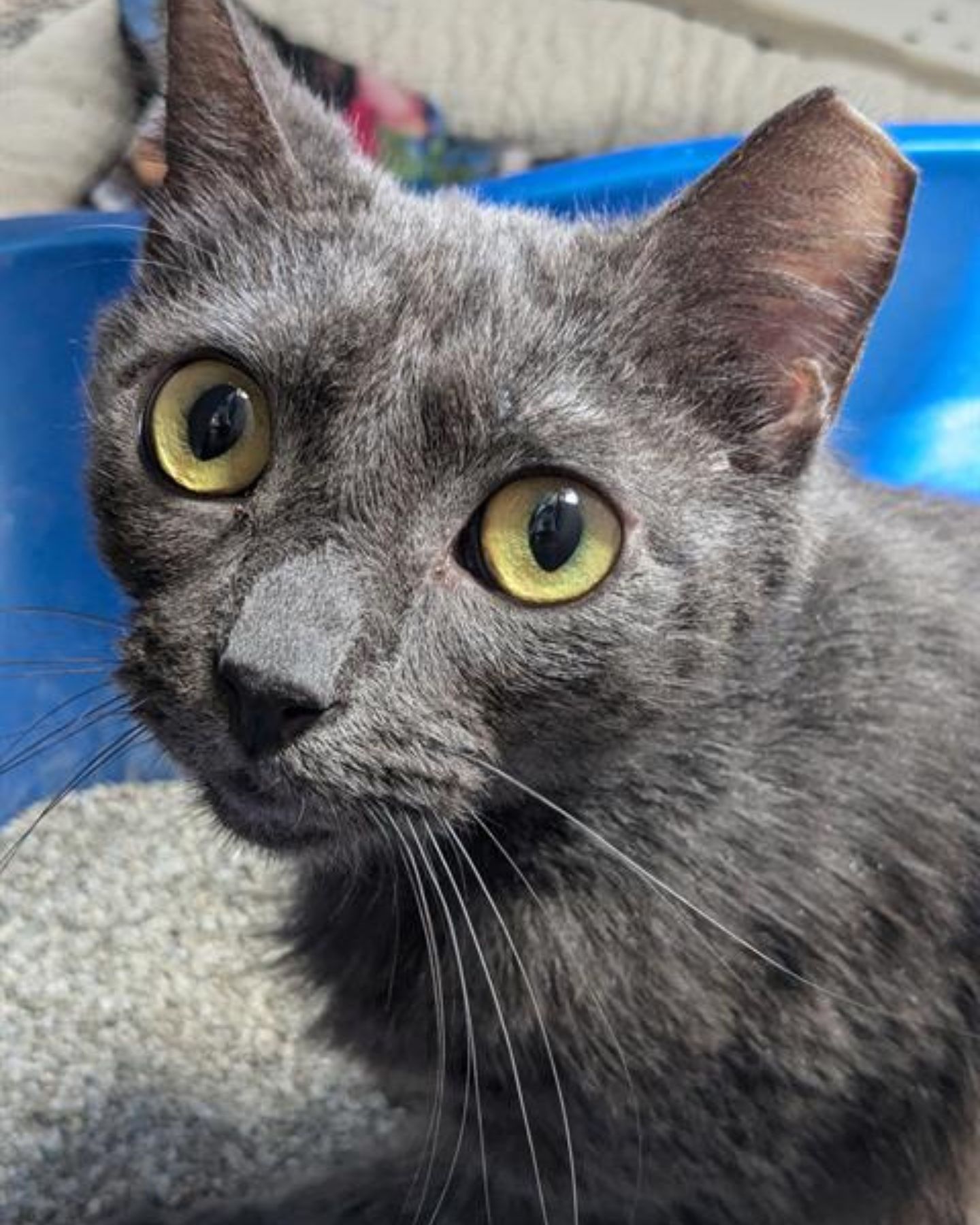
This rescue is proof of what can happen when communities, shelters, and individuals come together. It wasn’t just about saving cats, it was about giving living beings a second chance, about reminding us all that compassion still exists in the world.
From now on, these cats will no longer hear the creak of waves against a boat at night. Instead, they’ll fall asleep in warm beds, curled up in the arms of people who will cherish them.
And in the end, that’s what every animal deserves.


